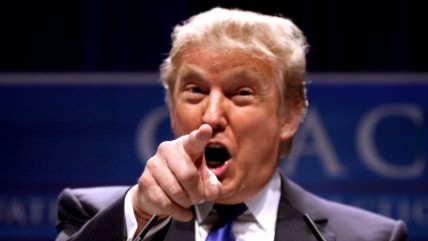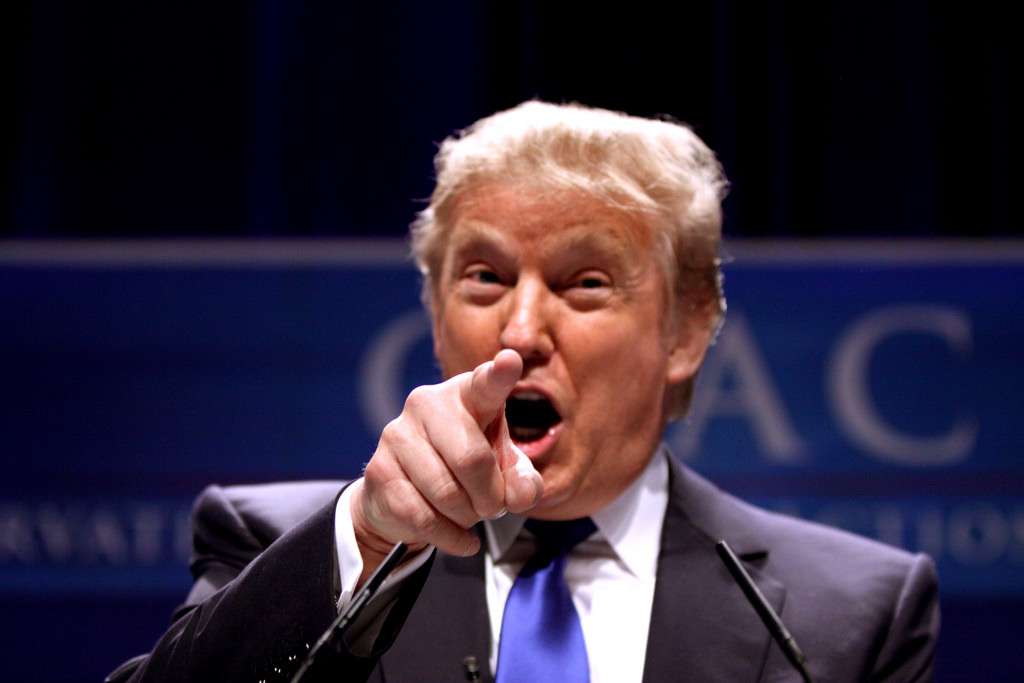Behind Trump's Appeal? 'You're Fired!'
Compare the ruthless accountability imposed within the televised Trump world with the lack of accountability in the federal government.


What's behind the extraordinary appeal of Donald Trump? I've been having a tough time understanding it, myself, but I think I've finally got a theory that at least is plausible. The variety of explanations offered elsewhere suggests that I'm not the only one having that trouble.
Ben Domenech, writing at the The Federalist, sees Trump's anti-immigration sentiment as akin to European-style white identity politics: "If a large—sorry, huge—portion of the country wants existing bipartisan immigration laws to be enforced, and one party tells them 'Yes,' but means 'No,' and the other party tells them, 'No' but means 'You're a racist,' then it's only a matter of time before some disruptor is going to emerge to call them out for their game."
Maybe I have too high an opinion of the American electorate, but I just can't believe that immigration or racism alone account for more than a small fraction of the support Trump is showing in polls. It doesn't square with other public opinion data. A recent ABC News/Washington Post poll found Americans overwhelmingly think undocumented immigrants from Mexico are mainly honest people trying to get ahead, not undesirable criminals. Gallup polls consistently show that large majorities of Americans think immigration on the whole is a good thing for America, not a bad thing. The same polls show that the total of Americans who want immigration to either increase or remain at current levels handily outnumbers those who want reduced levels of immigration.
Maybe people are unwilling to admit their anti-immigrant positions to pollsters. But then why are these same people unhesitant to tell these same pollsters about their support for Trump? Rick Santorum, who is running for president on an even more restrictionist immigration platform than Trump is, hasn't gotten any traction.
Paul Krugman, writing in The New York Times, attributes Trump's appeal to "his deviations from current Republican economic orthodoxy: his willingness to raise taxes on the rich, his positive words about universal health care." The Krugman theory that the Republican primary electorate is yearning for more government involvement in health care has the virtue of being a predictive model that also explains the party's nomination in 2012 of Mitt Romney, the father of Massachusetts' RomneyCare individual mandate. Alas, however, it fails to explain why these voters support Trump rather than, say, Bernie Sanders or Hillary Clinton, who share Mr. Trump's support for higher taxes and government-controlled health care.
Other voices seek to minimize Trump's appeal by saying the polls are just measuring the name recognition of a celebrity television star, or by pointing out that Mr. Trump has a "ceiling"—more than 40 percent or 50 percent or 60 percent or 70 percent of the voters are for someone else, depending on the poll. True, but Jeb Bush and Hillary Clinton have high name recognition, too. And Trump's "ceiling" seems to be getting higher and higher.
My own explanation of Mr. Trump's appeal is that it stems from the two-word sentence for which he's best known. If you had to attribute a phrase to Donald Trump, what would it be? Not his nonsense about "rapists" from Mexico or "blood coming out of her wherever" about Fox News' Megyn Kelly. No, the phrase that really made Trump world famous is the one he repeatedly used to cull the field on his hit show The Apprentice: "You're fired!" In 2004 he even applied, unsuccessfully, to trademark the phrase.
Compare the ruthless accountability imposed within the televised Trump organization with the lack of accountability within the federal government. "Federal firings hit record low in 2014," was the way a headline in Federal Times put it. The publication reported that workers in the private sector were fired at nearly six times the rate of those in the federal government. Are private sector workers nearly six times more likely to be incorrigibly incompetent? No, but the private sector has fewer union and civil service protections. Because of the discipline of profits, competition, and markets, the private sector has less tolerance for poor performance.
Even CBS News—not Fox, CBS—reported a story earlier this year headlined, "Red tape keeps some bad gov't employees from being fired." The account began, "In the private sector, if you're caught viewing porn on company time or intimidating a co-worker, you'd probably be fired immediately; not so if you're a federal employee."
When another successful billionaire politician tried to impose the private sector's "you're fired" ethos on government, he ran into roadblocks. New York City mayor Michael Bloomberg fired a city employee caught playing solitaire in the office on a work computer, but a judge ordered another such employee in similar circumstances to be reinstated with only a reprimand.
There are upper limits to public-sector operational excellence, which is one reason less government is better. But that doesn't mean we shouldn't want the government we have to be well run.
Perhaps the support for Trump is a sign of voter optimism — idealism, warranted or otherwise, even — about the possibility of bringing private sector efficiency and accountability to government agencies. It's a more hopeful alternative to the idea that the tens of millions of American voters who support Mr. Trump favor raising taxes or rounding up Mexican-Americans. And it has the additional advantage that it might actually be good for the country.


Show Comments (22)